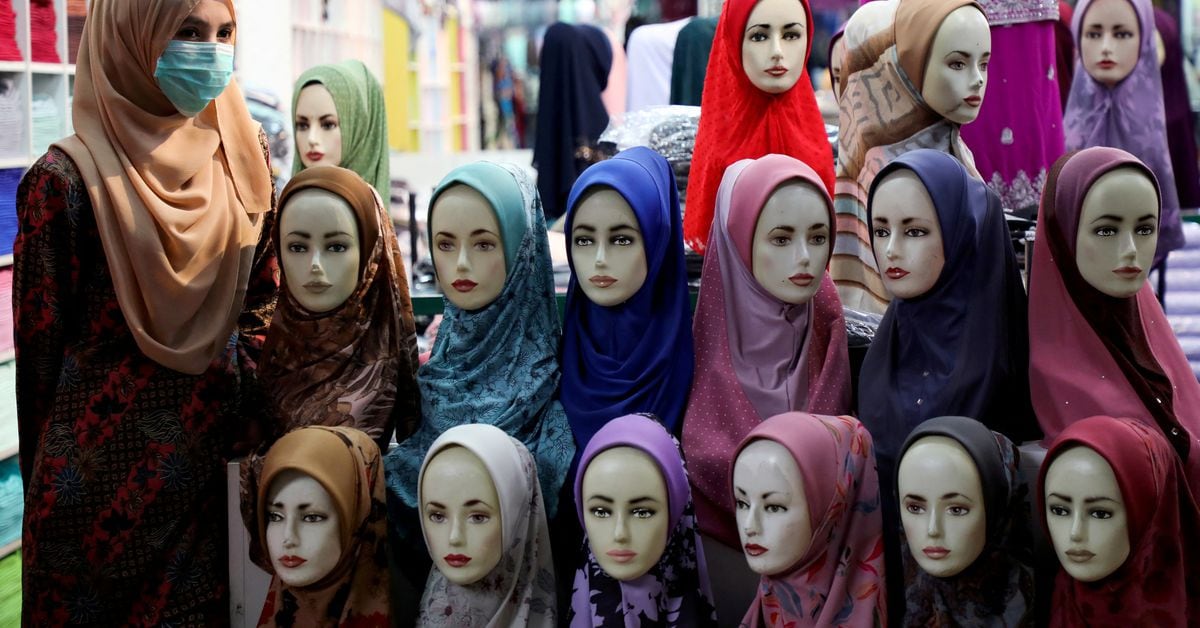The top European Union court ruled on Tuesday that public authorities in member states can prohibit employees from wearing signs of religious belief, such as an Islamic head scarf, in the latest decision on an issue that has divided Europe for years.
The case came to the Court of Justice of the European Union (CJEU) after an employee of the eastern Belgian municipality of Ans was told she could not wear an Islamic head scarf at work.



What you are describing is my variant number 2. If the rule by itself is dumb or not is another matter.
I tried to describe my second path poorly perhaps. Let’s try with a made up dialogue.
First variant how a state can be fair towards all religions:
Employee: Hey boss, I want an exception for the “no hats” rule because a head scarf is my religion
Boss: Of course, “religion” is always a valid reason to get an exception, since I can’t judge how much we’d interfere with your religion if we deny that
Second variant:
Employee: Hey boss, I want an exception for the “no hats” rule because a head scarf is my religion
Boss: Your religion you say? Yeah, that’s not anything we care about, honestly. If your head scarf had a medical use, there’d be an exception, but “religion” is not what we accept. You cannot be allowed to wear a headdress because “it’s your religion”, our rules apply to everyone equally.
No. It’s not another matter. It’s the entire matter. That’s my point.
I know what I described is your second option. But I’m deliberately putting the focus on the original rule, because that is where the problem lies.
The rule disproportionately affects people who wear headwear. The rule basically makes that job inaccessible to those whose religion requires headwear. The rule is discriminatory in its effect, even if not in its wording or intention. So the appropriate action is to rethink the rule. If there is no strong reason why the rule exists, and it has these discriminatory effects, then the rule should change.
Oh, I wholeheartedly agree that any rule that infringes on the freedom of expression of people should be able to be challenged and I agree that there are rules that only exist to please old “but in my time people still had manners” people and that those rules should go away immediately. Yet, that’s not what the court was asked to decide here. The EU-court doesn’t really decide on cases themselves usually, but it gets asked by lower courts to rule on matters of interpretation. So they didn’t rule if the “no hats” rule should go, they were asked if such a rule - if it exists - is applicable to religious hats or if the right to religious freedom protects such symbols. So they rule on half-theoretical questions that are often narrower than the case itself.
A little addition:
The “no hats” rule in this case wasn’t a “no hats” rule, but a “no religious symbols are allowed to be worn by anybody” rule. The court saw such a rule as justified because it did not discriminate against specific religions or symbols.
And I find that very structure harmful. Because by formulating the question asked of the court in a specific way, then limiting the answers it can give to only that question, you can force these kinds of discriminatory judgements while pretending that that wasn’t the point.
The court should be able to say, as part of the ruling, that while exemptions should not be given on religious grounds, justification for rules that are considered to infringe on religious freedoms may be asked for.
We can easily give a reason why discrimination should not be allowed while serving the public, and similarly why antlers cannot be worn in a workshop.
Which is ridiculous because a hypothetical religion could use pants as a symbol of their faith and suddenly pants are banned.
We should absolutely do that! A rule like that is usually just not enforced at best and leads to utter confusion at worst… idk what the people who made the rule thought they were doing.
They can absolutely do that. The court is not like “Yeah, we know this is bullshit but hey, they omitted that part in their question, so shrug”. They ruled that the rule was okay, since the rule itself is not discriminating, since all religions are treated the same. They do absolutely look at the case itself, they will just not issue rulings on the case itself since that
a) is in the jurisdiction of the member state
b) depends on the specific norms of the member state the case was filed in which the EU court just may not know completely (they may be able to rule on the EU-wide laws, but they might not be able to judge how the punishment for someone should be in Spain or something)
So the structure is actually pretty beneficial if you look at the structure of the EU.